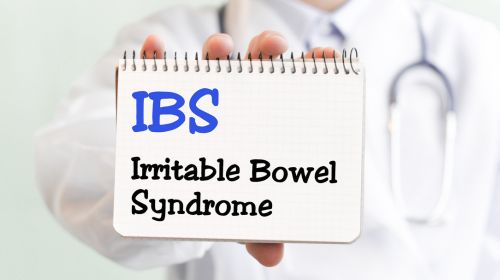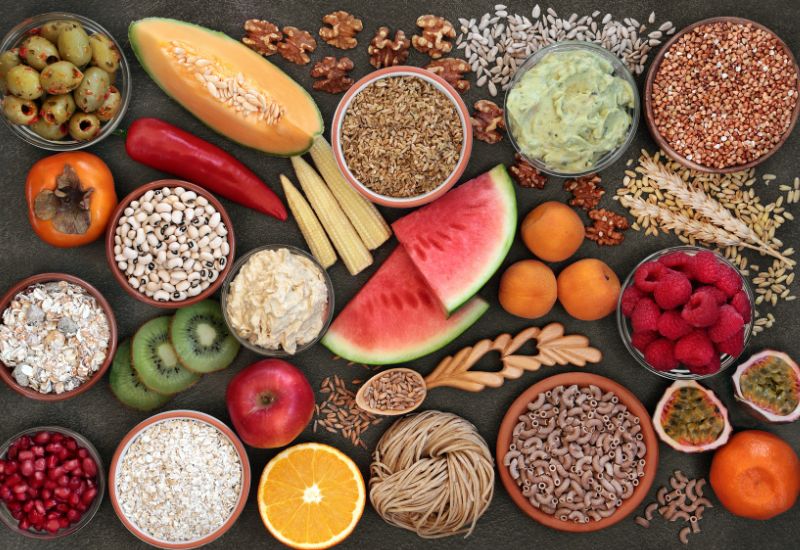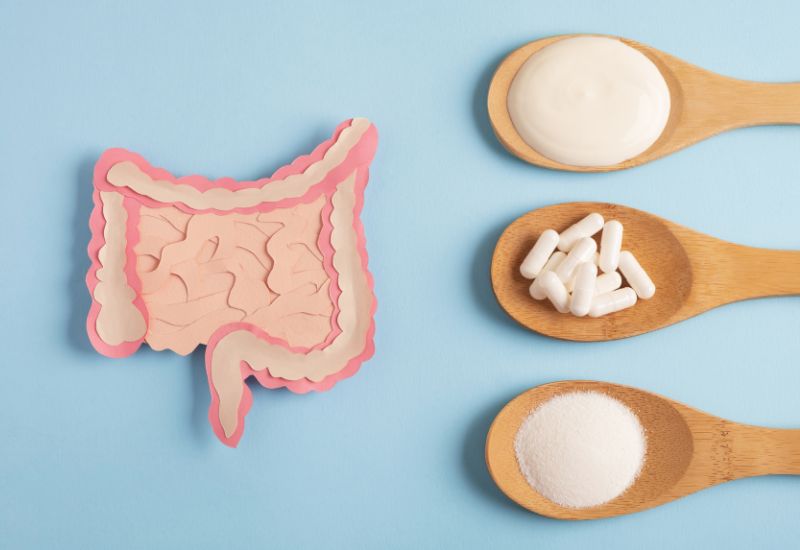Irritable Bowel Syndrome (IBS) is a chronic disorder of the digestive system that affects millions. While this condition, IBS, is common, many still don’t understand enough about it and feel frustrated in their attempt to cope with symptoms. In this article, we’ll look at the common symptoms and triggers of IBS, other treatment options, as well as how you can adjust your life to make yourself more comfortable.
Common Symptoms and Triggers of IBS
IBS can present with a number of symptoms associated with your digestive system. Although the exact cause of IBS is not known, it is thought to stem from a complex mix of factors including, intestinal muscle contractions, inflammation or irritability of the internal lining, and communication between the brain and gut.
Common Symptoms
IBS symptoms can vary widely from person to person but generally include the following:
- Abdominal Pain or Cramping: This is the symptom hallmark of IBS. Bowel movements often relieve the pain and the severity and frequency of it can change.
- Bloating and Gas: Many individuals with IBS will tell you they feel bloated and have lots of excess gas, especially after a meal.
- Diarrhea or Constipation: IBS causes diarrhea (IBS-D), constipation (IBS-C), or a combination of both (IBS-M). Nonetheless, these changes are sudden and often present without a warning.
These symptoms we discussed above can significantly impact your daily life which can cause discomfort, embarrassment, and anxiety. Furthermore, the ever-changing nature of IBS can make it difficult for individuals to predict when and where their symptoms will flare up.
Common Triggers
The exact triggers of IBS can vary from person to person, however, certain factors that exacerbate these symptoms can be the same for everyone:
- Dietary Triggers: Some foods (such as fatty or fried foods, dairy products, caffeine, alcohol, and artificial sweeteners) have been reported to trigger IBS.
- Stress: IBS is highly dependent on the brain-gut connection. Symptoms can also worsen with stress, anxiety, or depression.
- Hormonal Changes: IBS is more common in women and is more likely around the time of their menstrual cycle. It shows that hormonal changes contribute to flare-ups.
- Medications: Certain medications, including some antibiotics and some antidepressants, can trigger IBS symptoms. They do so by changing the way the gut bacteria and gut motility work.
Dietary and Lifestyle Changes to Manage IBS
The typical Management of IBS involves changes to the diet, stress management, and adopting a healthier lifestyle. There’s no one-size-fits-all solution, but there are a few strategies that have been found effective for a large number of individuals.
Dietary Сhanges
Diet is one of the most important things to help manage IBS symptoms and it has proven to be effective in a large number of people by trying to avoid trigger foods. A low FODMAP diet has been the talk of the town lately to reduce the symptoms of IBS. It works by limiting fermentable carbohydrates.
Onions, garlic, wheat, and certain fruits are high-FODMAP foods that can cause bloating, gas, and diarrhea in people with IBS.
Key dietary strategies include:
- Low-FODMAP Diet: During the high FODMAP exclusion, the Food Avoidance Diet cuts out foods high in FODMAPS, and then reintroduces them slowly to find which are responsible for symptoms. This process should be supervised by a doctor or dietitian to make sure that it is done safely.
- Increase Fiber Intake: Increasing your soluble fiber from foods like oats, bananas, and carrots will help to regulate bowel movements for people with IBS-C (constipation-predominant IBS).
- Stay Hydrated: You should drink 6-8 glasses of water a day to maintain a healthy digestion and prevent constipation due to lack of hydration.
Lifestyle Changes
Beyond diet, lifestyle changes can also help manage IBS symptoms and improve overall quality of life:
- Stress Management: Stress is a major trigger for IBS. You can add any stress-reducing techniques to your daily routine such as mindfulness, meditation, yoga, etc, or deep breathing exercises.
- Regular Exercise: Physical activity can help improve digestion and reduce stress Physical activity does not necessarily mean extreme sports. You can add normal activities like walking, swimming, or cycling to your life and get excellent results.
Medical Treatments and Alternative Therapies
Medical Treatments
Several medications are commonly used to alleviate IBS symptoms, depending on the type of IBS and the severity of the symptoms:
- Antispasmodics: Some medications, such as dicyclomine or hyoscine can help relax intestines’ muscles for abdominal pain and cramping.
- Laxatives: Laxatives provided over the counter or by prescription can relieve constipation for those with IBS-C.
- Antidiarrheal Medications: Medications, such as loperamide can help lower the frequency of diarrhea for those with IBS-D.
- Probiotics: Probiotics are the healthy bacteria that live within your gut. Sometimes, GI issues arise due to their imbalance. Taking probiotics can help restore that balance and eventually manage the symptoms of IBS.
Alternative Therapies
If you are not a fan of medical treatments for your IBS, there’s no need to fret over. There are a number of alternate therapies available for managing IBS. Some of them are:
- Acupuncture: Acupuncture helps stimulate the nerves and improves circulation which can help treat IBS symptoms. Acupuncture also helps resolve the pain associated with IBS.
- Herbal Supplements: Studies have shown that some herbs, such as peppermint oil may reduce abdominal pain and bloating. However, it is always the best option to talk to your doctor first before taking any supplement.
- Hypnotherapy: Hypnotherapy can be a great way to reduce the severity of IBS symptoms. It is believed that hypnotherapy works by calming down your gut by calming down your brain with the help of the gut-brain axis.
If you are willing to learn about IBS in further detail, you should take a look at this video a on YouTube.
Conclusion
Irritable Bowel Syndrome is a chronic condition, but it doesn’t have to control your life. There are a large number of medical, herbal, and alternative methods available to manage your IBS. However, as we have mentioned earlier, you should always consult your doctor before taking any of them.
Along with that, some lifestyle changes such as diet changes, and keeping yourself active can do wonders for your IBS.









